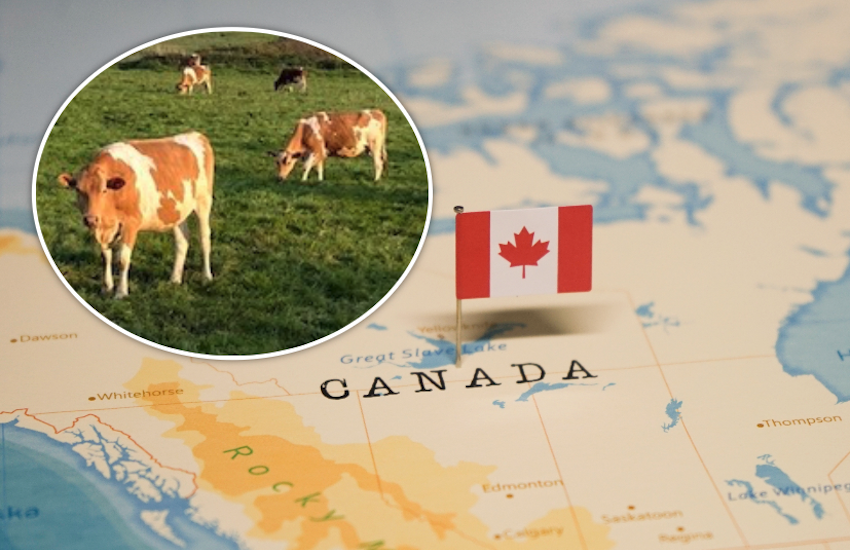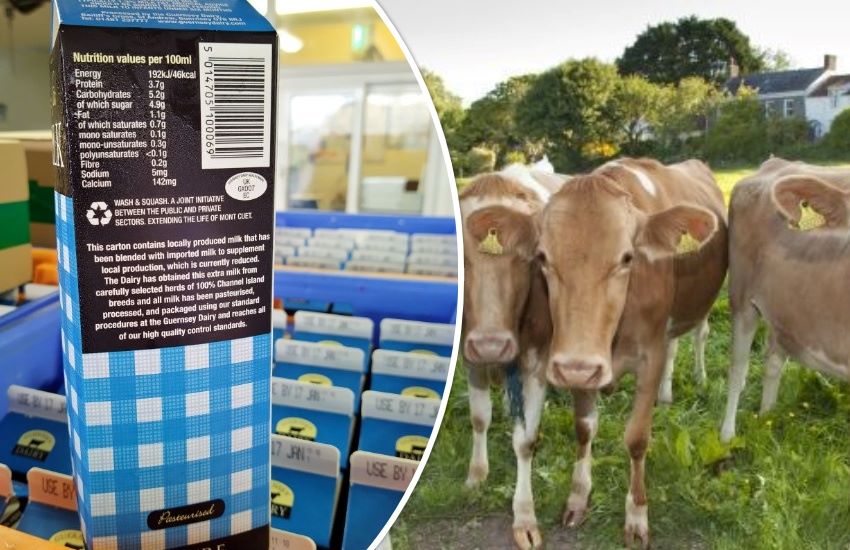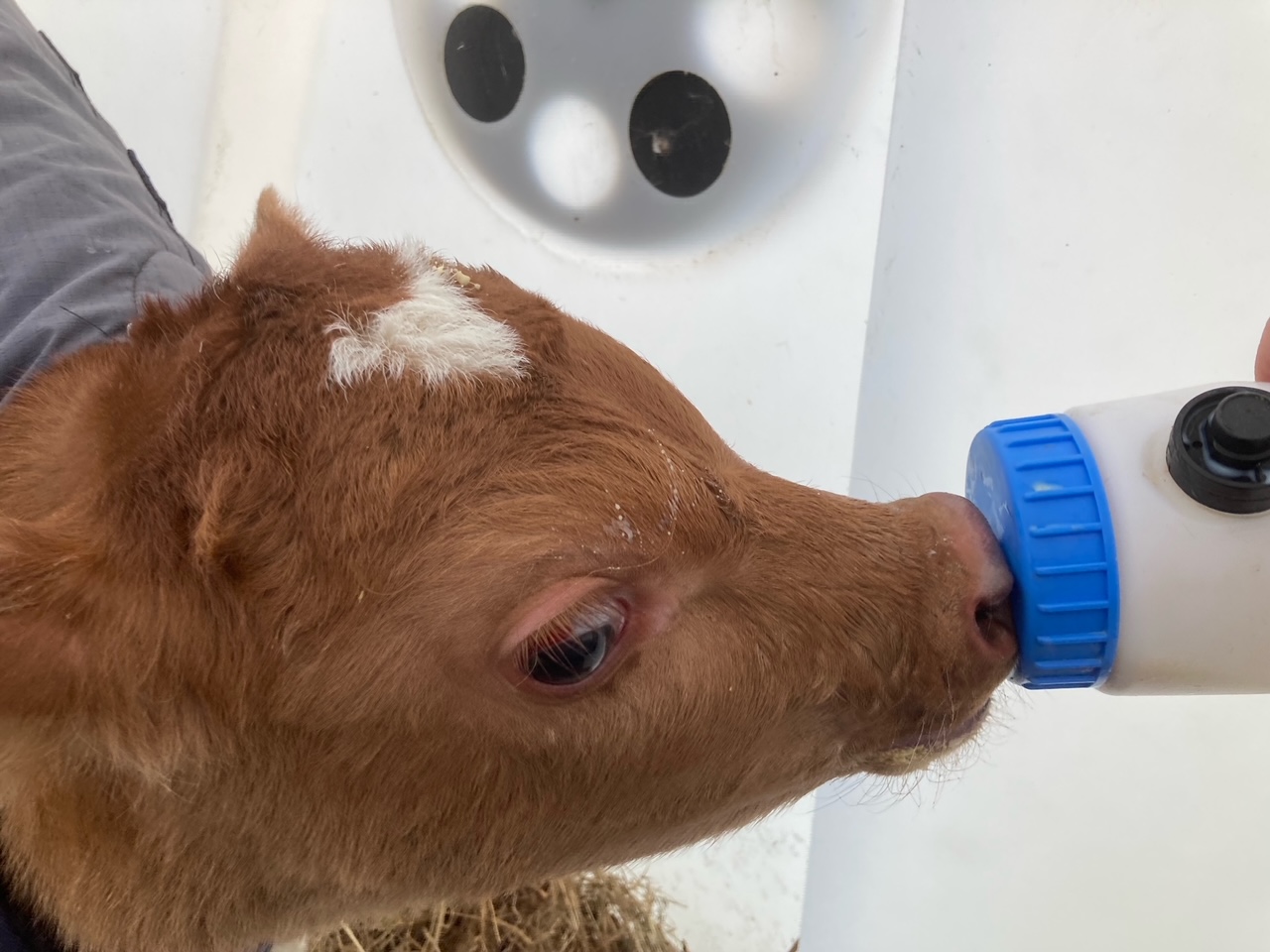


There are an estimated 2,000 Guernsey cows in Canada with a determined push to increase that number according to one fan of the breed.
Russell Gammon works for the Canadian Guernsey Association which is an organisation devoted to improving the current cow through various means.
He said this includes "widespread genomic testing, pushing for higher yields of fat and protein; and better percents of both in Guernsey milk, and ensuring that the Guernsey cow has the kind of body conformation that will allow the cow to produce profitable amounts of milk solids for numerous lactations".
Mr Gammon said the Guernsey cow has a lot of fans in Canada already with at least three farms producing milk, cheese, and yoghurts from their dairy herds. One farm is known to sell its milk to a luxury ice cream maker while the cheese produced from Guernsey cows in Canada is not just limited to cheddar, he said.
The Canadian market for Guernsey dairy products is not new, with the breed first registered in the country well over 100 years ago.
The Canadian Guernsey Association believes that the breed first arrived in Canada "unintentionally".
The earliest records put Guernsey cattle in the United States of America by 1840.
In the following years, it's understood that a herd of Guernseys were being taken by ship to the North American New England States, when rough seas forced a landing in Nova Scotia instead.
The first residents to farm the Guernsey breed were said to be "so impressed" by them that the Canadian Federal Minister of Agriculture was asked to approve their importation, with Canadian Prime Minister Sir John Abbott making them an official importation to Canada.
The breed's "easy temper" was among the attributes first noted.
The Canadian Guernsey Association itself was formed in 1905, but Mr Gammon said "there were definitely Guernseys in Canada before then!".
Mr Gammon told Express that in some cases, breed associations in Canada were registered in American herd books until herd books and domestic registries were established in Canada at a later date.
This definitely would have been the case by the time the Canadian Guernsey Association was founded in 1905.
Those early documents and registries show that the Guernsey breed was once a much bigger part of the dairy industry in Canada.
Mr Gammon said "there were robust markets for Golden Guernsey 2% milk as a specialty product," but "with pooling of milk in the 1960s the Golden Guernsey programs disappeared".
However, the golden and cream Guernsey cows were not forgotten, he said.
In Guernsey, the only fresh liquid cow's milk that can legally be sold is from Guernsey cows, produced through the Guernsey Dairy.
However, in Canada despite the milk market being much larger and much freer, there seems to be a growing demand for milk from Guernsey cows.

Pictured: All milk in the island of Guernsey is produced through the Guernsey Dairy. Farmers in Canada have more options with a seemingly growing appetite among shoppers for Guernsey dairy products.
Mr Gammon said one family distribute their Guernsey milk to more than 200 stores in Ontario and they also sell through their own and other farm stores.
"Since 2012 (this) Guernsey family have been marketing Golden Guernsey milk as 2% and full fat milk along with Guernsey yogurts and cheese.
"They now access milk from two other nearby Guernsey herds to meet growing demand."
He added that other farmers are also selling Guernsey dairy products.
"In Ontario three processors produce products from 100% Guernsey milk. Two of them are cheese only. In the third case fluid milk, cheese-havarti and Cheddar, and yogurt are made and a small quantity of Guernsey beef is sold. On this farm some milk is sold to a maker of a luxury ice cream line."
In the breed's home island, there are 11 working dairy farms with more than 1,250 milking cows, supplying approximately 7.6 million litres of liquid milk to the Guernsey Dairy each year.
These farms are tasked with upholding the highest standards of animal welfare whilst also enhancing the island's natural habitat and maintaining the island's predominantly rural way of life.
In Canada, Mr Gammon said there is only a modest population of the breed but the efforts to grow its number appear to be working already.
"In truth the Guernsey in Canada is very modest in numbers," he said. "There is a determined push to revitalise numbers and grow the breed again.
"Approximately 300 Guernseys are registered each year in Canada so it is realistic to think that the total population is between 1500 and 2000 head. Definitely a modest number."

Pictured: A Guernsey calf.
The genomic testing he mentioned would enable the country's dairy farmers to learn more about the key traits of the Guernsey breed, to help maximise milk production, maintain and improve the animals' health, and protect the breed's important characteristics.
"Numerous members of the (Canadian Guernsey) Association have pinpointed the need to make more good quality Guernseys so that more dairy producers will be able to 'test drive' the breed," he said.
"We are determined to raise the visibility of the breed so more people will own them."
Mr Gammon said there are many fans of the island breed in Canada.
He said this interest extends to the island that gave Guernseys their name.
"Amongst Guernsey owners and fans of the breed your island holds a mystique and fascination as home of the breed. Numerous Canadians have been to Guernsey.
"When we shared some photos from the annual show in late July on Guernsey there was definite interest from people from a number of countries. They were impressed by some of the island cattle."
The annual show he references was the Royal Guernsey Agricultural and Horticultural Show, held annually in Guernsey every July.
Photos from this event were shared with a wide audience via the Canadian Guernsey Association which reposted content from the RGA&HS on Facebook.
Mr Gammon was pleased to confirm that the Canadian Guernsey Association enjoys a friendly relationship with the Royal Guernsey Agricultural and Horticultural Society and that members of the CGA have been to Guernsey in recent years.
"Our relationship with the RGA&HS would be through the World Guernsey Cattle Federation," he explained.
"When a World Conference was held in England in 2023 a couple of Canadians were part of a touring group who took an optional tour to Guernsey and much enjoyed it.
"We would be most open to more interaction with the island association," he added.
Comments
Comments on this story express the views of the commentator only, not Bailiwick Publishing. We are unable to guarantee the accuracy of any of those comments.